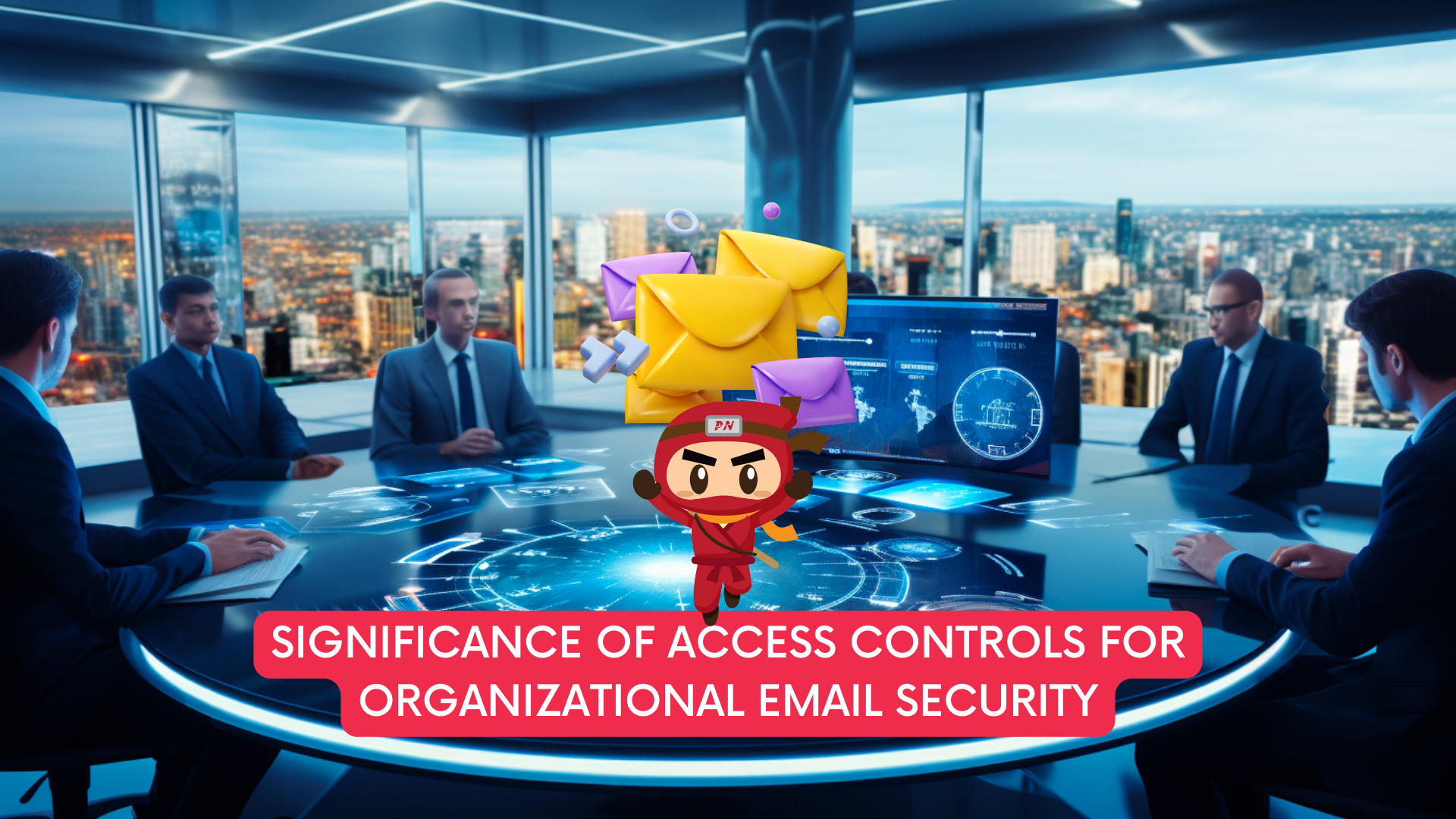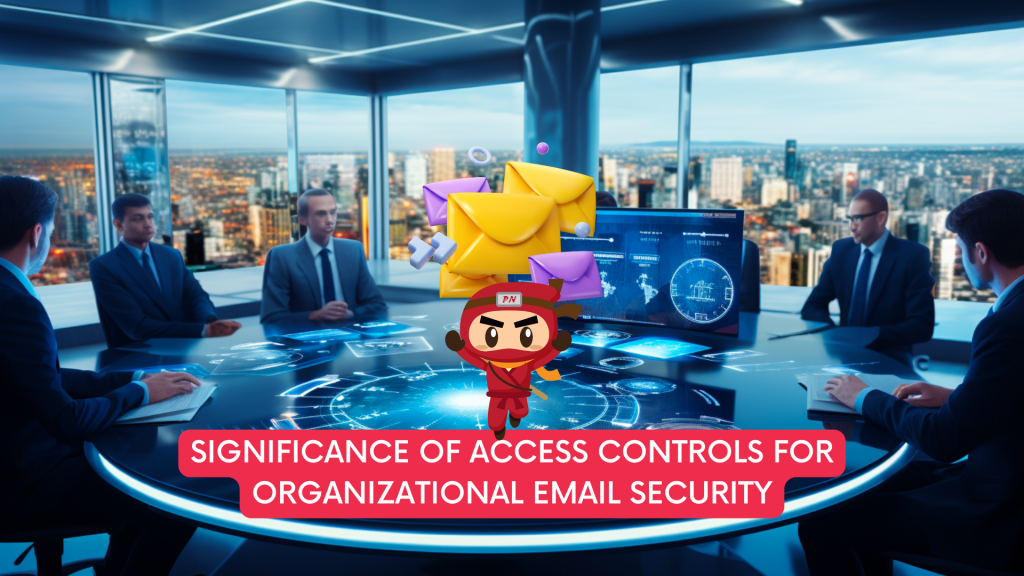KEEP IN TOUCH
Subscribe to our mailing list to get free tips on Data Protection and Cybersecurity updates weekly!







In the digital age where communication forms the backbone of organizational operations, ensuring the security of email accounts is paramount. The practice of implementing access controls for organizational email accounts is not just a best practice; it’s a crucial measure that safeguards individual accountability and mitigates risks to the integrity and confidentiality of personal data.
In this article, we delve into the significance of access controls, emphasizing the potential consequences of shared email accounts for every employee.
Organizational email accounts serve as the primary mode of communication, facilitating seamless collaboration and information exchange. However, the indiscriminate sharing of these accounts among every employee compromises individual accountability. Access controls establish a foundation of accountability by ensuring that each employee has designated access levels aligned with their role and responsibilities.
Sharing email accounts may seem like a convenient approach to streamline communication, but it poses a significant risk to the integrity and confidentiality of personal data. Access controls act as a gatekeeper, limiting access to sensitive information only to those individuals who require it for their designated tasks. This proactive measure prevents unauthorized access, potential data breaches, and inadvertent exposure of confidential information.
Implementing access controls involves tailoring permissions based on roles and responsibilities within the organization. For instance, an employee from the marketing team may not need the same level of access as someone from the finance department. Access controls ensure that each employee has access only to the information necessary for the efficient execution of their duties, minimizing the risk of data mishandling or misuse.

In a shared email account scenario, the risk of data integrity breaches becomes pronounced. Unintentional modifications, deletions, or unauthorized access can compromise the integrity of critical information. Access controls act as a safeguard, allowing organizations to enforce data integrity by restricting access to individuals with specific roles and responsibilities. This ensures that data remains accurate, reliable, and unaltered by unauthorized parties.
Cyber threats are pervasive, and email accounts are often targeted by malicious actors seeking unauthorized access to sensitive information. In a shared email environment, the impact of a security breach is magnified. Access controls become a critical component of the organization’s cybersecurity posture, serving as a deterrent against potential threats and minimizing the attack surface for cyber adversaries.
While the convenience of shared email accounts may seem appealing, the drawbacks far outweigh the benefits. Shared accounts lack the granularity of access controls, making it challenging to trace actions to specific individuals. This not only hampers accountability but also impedes incident response in the event of a security breach. Additionally, shared accounts make it difficult to implement measures such as two-factor authentication, further exposing the organization to cybersecurity risks.
In an era where data protection regulations are stringent, organizations must adhere to compliance standards to avoid legal consequences. Sharing email accounts without proper access controls jeopardizes compliance efforts, as it becomes challenging to demonstrate that personal data is handled with the required level of care and security. Access controls, on the other hand, provide a tangible framework for organizations to showcase their commitment to data protection and privacy.
To fortify the security of organizational email accounts, it is imperative to embrace best practices that align with access controls. These may include:

In conclusion, the practice of implementing access controls for organizational email accounts goes beyond mere cybersecurity hygiene – it is an integral aspect of building a secure and accountable digital infrastructure.
By steering clear of the pitfalls of shared accounts and embracing access controls, organizations not only safeguard the integrity and confidentiality of personal data but also demonstrate their commitment to data protection regulations.
Access controls become the digital gatekeepers, ensuring that only authorized individuals have access to the sensitive information that fuels organizational success.
Your appointed DPO can work with you on your PDPA compliance, ensuring that there will be policies in place to make sure that the handling of personal data is PDPA compliant.
A Data Protection Officer (DPO) oversees data protection responsibilities and ensures that organisations comply with the Personal Data Protection Act (PDPA). Furthermore, every Organisation’s DPO should be able to curb any instances of PDPA noncompliance as it is the officer responsible for maintaining the positive posture of an organisation’s cybersecurity.
DPOs complement organisations’ efforts to ensure that the organisation’s methods of collecting personal data comply with the PDPA. It also ensures that policies are set in place to make sure that there will be no instances of data breaches in the future.
Don’t wait any longer to ensure your organisation is PDPA compliant. Take our free 3-minute PDPA Compliance Self-audit checklist now, the same “secret weapon” used by our clients to keep them on track. Upon completion, we will send you the results so you can take the necessary action to protect your customers’ data. Complete the free assessment checklist today and take the first step towards protecting your customers’ personal data.